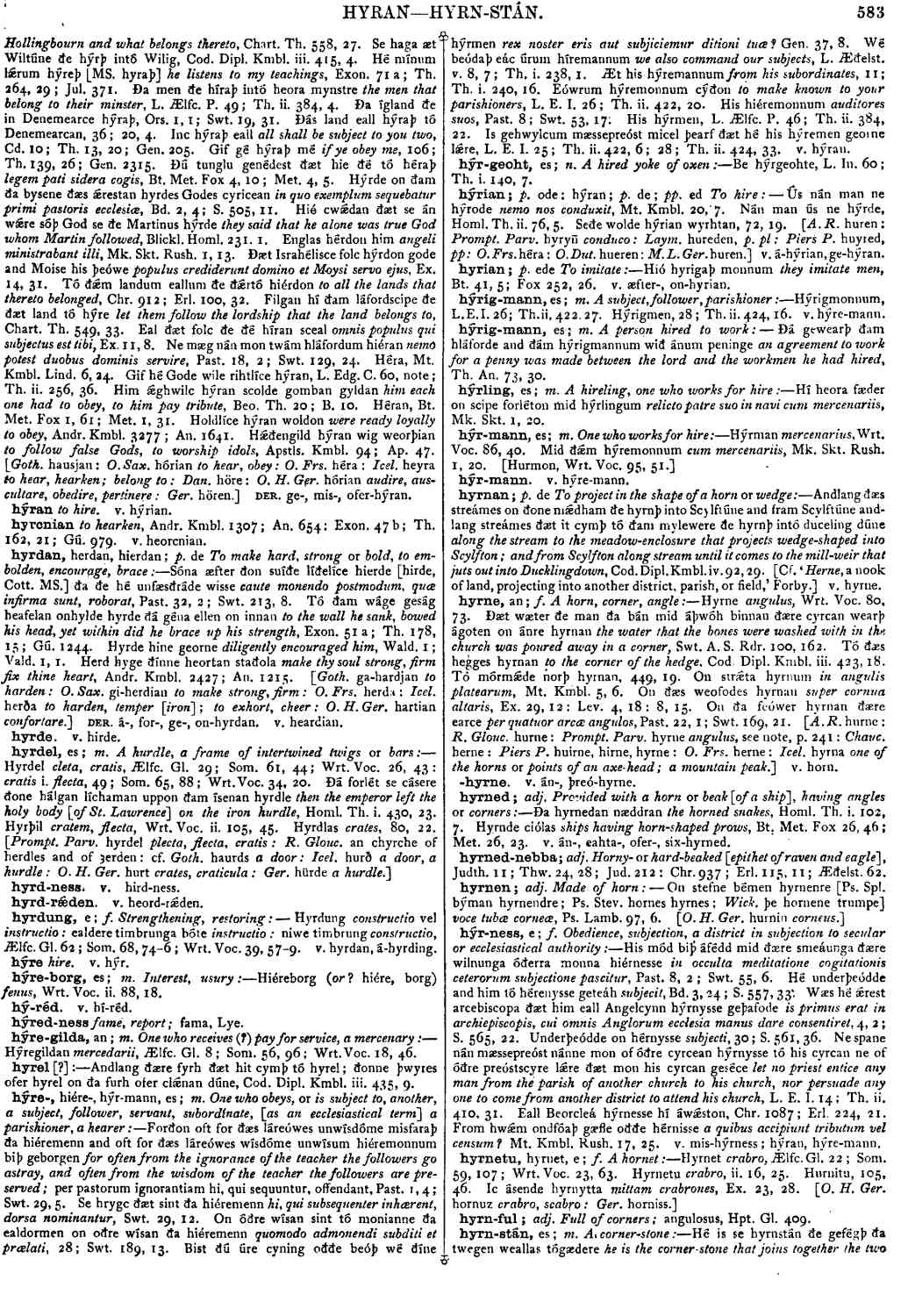hýre-mann
-
Forðon oft for ðæs láreówes unwísdóme misfaraþ ða hiéremenn and oft for ðæs láreówes wísdóme unwísum hiéremonnum biþ geborgen
for often from the ignorance of the teacher the followers go astray, and often from the wisdom of the teacher the followers are preserved;
per pastorum ignorantiam hi, qui sequuntur, offendant,
- Past. 1, 4 ;
- Swt. 29, 5.
-
Se hrygc ðæt sint ða hiéremenn
hi, qui subsequenter inhærent, dorsa nominantur,
- Swt. 29, 12.
-
On óðre wísan sint tó monianne ða ealdormen on oðre wísan ða hiéremenn
quomodo admonendi subditi et prælati,
- 28 ;
- Swt. 189, 13.
-
Bist ðú úre cyning oððe beóþ wé ðíne hýrmen
rex noster eris aut subjiciemur ditioni tuæ?
- Gen. 37, 8.
-
Wé beódaþ eác úrum híremannum
we also command our subjects,
- L. Æðelst. v. 8, 7 ;
- Th. i. 238, 1 .
-
Æt his hýremannum
from his subordinates,
- 11 ;
- Th. i. 240, 16 .
-
Eówrum hýremonnum cýðon
to make known to your parishioners,
- L. E. I. 26 ;
- Th. ii. 422, 20.
Bosworth, Joseph. “hýre-mann.” In An Anglo-Saxon Dictionary Online, edited by Thomas Northcote Toller, Christ Sean, and Ondřej Tichy. Prague: Faculty of Arts, Charles University, 2014. https://bosworthtoller.com/20353.
Checked: 1